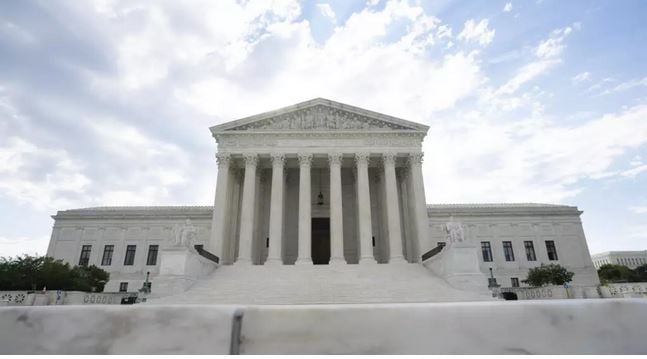News Flash
News Flash

WASHINGTON, July 3, 2025 (BSS/AFP) - The US Supreme Court
agreed on Thursday to wade into the hot-button issue of transgender athletes in
girls and women's sports.
The court said it would hear a case next term challenging state laws in Idaho and
West Virginia banning transgender athletes from female competition.
More than two dozen US states have passed laws in recent years barring athletes
who were assigned male at birth from taking part in girls or women's sports.
The conservative-dominated Supreme Court's decision to hear the case comes
two weeks after it upheld a Tennessee law banning gender-affirming medical
treatment for transgender minors.
The Supreme Court has also recently backed a move by President Donald Trump,
who campaigned on the issue of transgender athletes, to have transgender
troops dismissed from the military.
Trump issued an executive order in February aimed at banning transgender
athletes from girls and women's sports.
"From now on women's sports will be only for women," Trump said. "With this
executive order the war on women's sports is over."
The executive order allows federal agencies to deny funding to schools that allow
transgender athletes to compete on girls or women's teams.
In a high-profile case, the University of Pennsylvania agreed this week to ban
transgender athletes from its women's sports teams, settling a federal civil rights
case stemming from the furor around swimmer Lia Thomas.
The Department of Education said that UPenn had entered into a resolution
agreement vowing to comply with Title IX, the federal law which prohibits sex-
based discrimination in any educational program.
It follows an investigation by the department's Office for Civil Rights which found
the university had violated Title IX by allowing transgender swimmer Thomas to
compete in women's competitions.
Thomas became a lightning rod around the debate over transgender athletes in
women's sport after competing in female collegiate competitions in 2022.
She had earlier swam on UPenn's men's team while undergoing hormone
replacement therapy.
Critics and some fellow swimmers said she should not have been allowed to
compete against women due to an unfair physiological advantage.
The Idaho case accepted by the Supreme Court stems from the Republican-led
state's "Fairness in Women's Sports Act."
It was challenged by an athlete at an Idaho university and lower courts ruled that
it violates the equal protection clause of the Constitution.
The West Virginia case was challenged by a middle school student who was not
allowed to compete for the girls' track team. An appeals court ruled that the ban
was a violation of Title IX.
The Supreme Court will hear the case during the term beginning in October and
issue a ruling next year.